IRB Profiles
-

Theodore, Yvonne
Conflict resolver and curiosity quencher
Theodore,
Yvonne

Theodore, Yvonne
Conflict resolver and curiosity quencher
For Yvonne Theodore, Johns Hopkins University was a place to both work and learn. Even after earning a master’s degree in liberal arts, she continued to enroll in classes to quench her curiosity about subjects ranging from art to law.
When she took early retirement in 2000, she was a special assistant to the provost and director of Affirmative Action and Equal Opportunity Programs. Theodore once described her career at Johns Hopkins by saying that she worked for all JHU schools and programs around the world, wrote federal proposals, investigated and resolved legal cases for the university’s Office of the General Counsel, and “resolved conflicts between virtually every imaginable human category.” Her commitment to justice and equity remains legendary at Johns Hopkins and continues to further the university’s progress in creating a learning community enriched by its diversity.
-
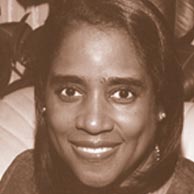
Thomas, Claudia
Lifelong boundary crosser
Thomas,
Claudia

Thomas, Claudia
Lifelong boundary crosser
In her autobiography, God Spare Life, Claudia Thomas describes three major storms in her life: the turbulence of being a college student during the 1960s, the fright of a Category 5 hurricane, and the emotional journey to survive kidney disease through a transplant from her sister.
The faith and strength that enabled Thomas to weather those storms also yielded great accomplishments. While an undergraduate at Vassar College, a 1969 sit-in she led served as a catalyst for the college to establish its Africana Studies department. After graduating from the Johns Hopkins School of Medicine in 1975, Thomas became the first female to graduate from the Yale-New Haven Hospital Orthopaedic Residency Program and the first black female orthopedic surgeon in the United States.
An assistant professor at Johns Hopkins, Thomas now maintains a private practice in Central Florida. In 2008, in honor of her work to encourage and support minorities and women entering the field of orthopedics, Thomas received the annual Diversity Award from the American Academy of Orthopaedic Surgeons.
-
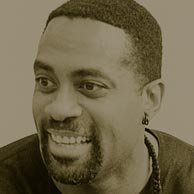
Thomas, Daniel Gary
Front man for jazz studies
Thomas,
Daniel Gary

Thomas, Daniel Gary
Front man for jazz studies
Playing jazz saxophone and flute has taken Baltimore native Gary Thomas around the world. As the Peabody Institute’s director of jazz studies and the Richard and Elizabeth Case Endowed Professor in Jazz, he shares the musical knowledge and experiences gained on those world travels with students and faculty.
Thomas founded the jazz studies degree program at Peabody in 2001 and is the first black person to become a degree program director at the conservatory.
JazzTimes magazine called Thomas one of “the more uncompromising and original saxophone voices” of his generation. He has performed and/or recorded with legendary musicians, including Miles Davis, Pat Metheny, Cassandra Wilson, Wynton Marsalis, McCoy Tyner, Kevin Eubanks, and Ravi Coltrane, and he has been a member of the Herbie Hancock Quartet and Jack DeJohnette’s Special Edition Band. DownBeat magazine named two of his recordings among the best of the 1990s.
Thomas has said, “The students want the teacher to be able to do what he’s trying to teach them to do. I liked being a [band] leader at times. I’m sort of the same thing at Peabody.”
-
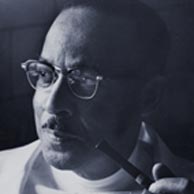
Thomas, Vivien T.
Legendary surgical partner
Thomas,
Vivien T.

Thomas, Vivien T.
Legendary surgical partner
Although a lack of funds kept Vivien Thomas from finishing college, the situation did not dim his determination or intellect. Hired originally to work in Alfred Blalock’s laboratory at Vanderbilt University, he was upgraded to surgical assistant.
Thomas became a key collaborator of Blalock’s, doing surgeries, developing operative techniques and even designing and fabricating surgical equipment. Working as a team, Blalock, pediatric cardiologist Helen Taussig and Thomas devised a groundbreaking heart surgery to correct a congenital heart defect known as “Blue Baby” syndrome.
Thomas’ role in this 1944 breakthrough moment is dramatized in the HBO film Something the Lord Made, and the PBS documentary Partners of the Heart.
Eventually Thomas became the supervisor of surgical research laboratories at Johns Hopkins, a position he held for 35 years. After retiring, he became instructor emeritus of surgery. In 1976, he was awarded an honorary Doctor of Laws degree from Johns Hopkins University.
Thomas, who passed away in 1985, has a permanent place on the Johns Hopkins campus. His portrait hangs directly across from Blalock’s in the lobby of the Blalock Building at The Johns Hopkins Hospital, and a fund named in his honor, the Vivien Thomas Fund, promotes diversity in academic medicine and biomedical science.
-
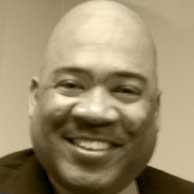
Thompson, David
Keeper of obligations, supporter of dreams
Thompson,
David

Thompson, David
Keeper of obligations, supporter of dreams
With a father in the Air Force, David Thompson lived in many states and in the Philippines before his family settled in Baltimore, his father’s hometown. Along the way, Thompson saw some of the highs and lows of life, including people who could not envision rising above their circumstances. Perhaps those experiences instilled in him the desire to support others in reaching their goals.
Thompson’s life journey began with the Air Force and so did his professional career. After serving as a non-commissioned officer and beginning his college studies in the Air Force, he completed an undergraduate degree in accounting from Morgan State University and immediately went to work for CPA firms, including Abrams, Foster, Nole & Williams, P.A., Baltimore’s largest black-owned CPA firm, and the national firm McGladrey, LLP.
Thompson left the private sector to build a career at Johns Hopkins, where he now serves as senior tax accountant for the tax office at Keswick. He is responsible for University-wide tax compliance by preparing and analyzing complex tax returns for federal and state authorities. His work also includes consulting with all of the university’s schools and
divisions regarding the proper employment status of independent contractors and employees throughout the country. But even on the job, Thompson helps the next generation by taking time to foster the growth of student interns and young employees.
In the community, Thompson is a member and former elected officer of Kappa Alpha Psi Fraternity, Inc. one of the largest and oldest black fraternities in the world. He mentors youth in inner city Baltimore, both informally and through formal programs, like the Johns Hopkins University Mentoring Program at City Springs Elementary School. In addition, he is a baseball coach, girls’ softball commissioner and treasurer of the Northwood Baseball League. Thompson shares his professional knowledge by offering pro bono accounting advice and services to aspiring entrepreneurs.
“Many youth and adults in the impoverished communities of Baltimore City don’t believe that they can achieve any goal, any endeavor, any dream,” Thompson says. “Just letting someone know that you believe in them can change their life.”
-
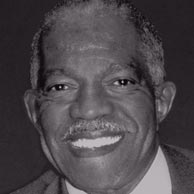
Tildon, J. Tyson
Champion for children through medical research and education
Tildon,
J. Tyson

Tildon, J. Tyson
Champion for children through medical research and education
Growing up in a time of racial segregation, J. Tyson Tildon was not permitted to attend Baltimore’s then all-white academic high schools. Never one to let barriers stand in his way, he became a renowned neuroscientist and an advocate for Baltimore City’s public schools.
After returning from a year in Paris as a Fulbright Scholar, Tildon earned a doctorate in biochemistry from Johns Hopkins University in 1965 and completed a two-year postdoctoral fellowship at Brandeis University. He then began an academic and research career at Goucher College before moving to the University of Maryland’s Department of Pediatrics where he worked for 32 years until his retirement. At Maryland, Tildon created and led the Division of Pediatric Research and became a professor of pediatrics.
The author of 115 scientific papers, Tildon focused much of his research on developmental neurochemistry and the processes that control metabolism.
To describe one cell type providing nutrients to another, he coined the term “metabolic trafficking.” He is credited with discovering Coenzyme A transferase deficiency in infants and with advancing understanding of the causes of sudden infant death syndrome, certain types of mental retardation, and strokes. Tildon was the major architect of the University of Maryland’s Sudden Infant Death Syndrome Institute, and his research received more than $10 million in National Institutes of Health funding.
Beyond the laboratory, Tildon, who passed away in 2006, made significant contributions to the community, serving as the chair of the Board of School Commissioners for Baltimore’s schools and on the boards of numerous groups, including Associated Black Charities, WYPR radio, the Civil Services Commission of Baltimore, the Maryland Academy of Sciences, the Enoch Pratt Free Library and the American Red Cross.
-
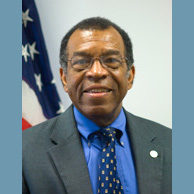
Turner, James
Air and water protector
Turner,
James

Turner, James
Air and water protector
James Turner credits his success to his “loving parents who stressed family, integrity, achievement, service and education.” As he studied physics at Johns Hopkins (undergraduate) and MIT (where he earned a PhD), Turner was troubled to see so few students of color and women considering careers in science, technology, engineering and mathematics. Addressing this issue has been a theme throughout Turner’s career, from stints on the faculties of historically black colleges to work in his community and through professional associations to promote STEM careers to women and underrepresented minorities.
Turner spent most of his career at the U.S. Department of Energy, working in magnetic fusion energy, nuclear weapons safety and nuclear nonproliferation. Among his projects was coordinating the Department of Energy’s efforts to ensure the safe dismantlement of nuclear weapons in the former Soviet Union.
Since 2008, Turner has served as the director of the Office of International Affairs and senior adviser to the National Oceanic and Atmospheric Administration.
-
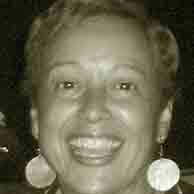
Varner-Gaskins, Rose
Champion of Change—Black Faculty and Staff Association Founder
Varner-Gaskins,
Rose

Varner-Gaskins, Rose
Champion of Change—Black Faculty and Staff Association Founder
The Black Faculty and Staff Association (BFSA) came together, as so many advocacy groups do, over lunch and a conversation. Lunch was at the Polo Grill, then a restaurant across from Homewood Field, and the people who had gathered to talk were black senior staff members concerned about the lack of support for people of color at Johns Hopkins.
Toni Moore-Duggan, one of the participants, recalled how that lunch and subsequent discussions among the staff members led to their decision in 1995 to establish the BFSA.
“After graduating from Johns Hopkins and while working there, it became evident that there was no voice or forum for black people having difficulties here,” said Moore-Duggan, a certified nurse practitioner who worked at the institution for years.
At first, Moore-Duggan said, she and the other staff members were not sure if anyone would buy into efforts to create a forum for people of color, but they did. Seventeen years later, the group
is not only going strong but has expanded its mission: to help foster a culture of collaboration by promoting and enhancing the identity and professional welfare and growth of faculty, staff and students through collaborations, community service, education, research and cultural activities. The BFSA has also charged itself with being a crucial resource for the continued success of Johns Hopkins through the development and cultivation of relationships with key leaders of the institution.
Rose Varner-Gaskins, now retired, directed the Office of Multicultural Student Affairs at Johns Hopkins University. She also spearheaded the successful effort to bring a portrait of a person of color to the Homewood campus. The painting of U.S. Supreme Court Justice Thurgood Marshall in Levering Hall was unveiled during CultureFest 1998. Although Marshall never attended or worked at Johns Hopkins, he was selected by a committee because of his strong connection to Baltimore and his role in the desegregation of schools.
-
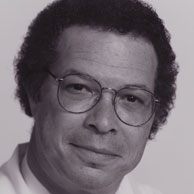
Watkins Jr., Levi
Lifesaving innovator and activist
Watkins Jr.,
Levi

Watkins Jr., Levi
Lifesaving innovator and activist
Growing up in Alabama, Levi Watkins viewed the world from the passenger seat of a station wagon driven by the Rev. Martin Luther King Jr. On Sunday mornings, Watkins would go to King’s house to pick up the list of people who needed transportation to church. Watkins would take the worshipers to church, and after the service, King would drive Watkins home, imparting wisdom along the way.
Influenced by the activism of King, Ralph David Abernathy, his parents and others, Watkins endured the challenge of being the first black to integrate Vanderbilt University School of Medicine. Later the Rev. Jesse Jackson dubbed Watkins “the doctor of the movement” because he provided medical services to so many civil rights leaders, including Abernathy, Coretta Scott King, Rosa Parks and Andrew Young.
Watkins arrived at Johns Hopkins School of Medicine in 1970, just two years after King’s assassination, determined to help the university
move from integration to true diversity. “I knew that people of color had the potential of changing Johns Hopkins,” he said.
Watkins has been a key motivator of that change. Renowned for performing the world’s first human implantation of the automatic implantable defibrillator, he also helped the hospital develop its cardiac arrhythmia service and established the nation’s first postdoctoral association. In 1979, Watkins joined the medical school’s admissions committee. With his leadership, minority representation at the school had increased 400 percent by 1983. Watkins also initiated an annual Martin Luther King Jr. Commemoration at Johns Hopkins, bringing in such notable speakers as Desmond Tutu, Coretta Scott King, Harry Belafonte and Maya Angelou, and along with Gregory William Branch, MD, he co-founded United Voices, the Johns Hopkins Medical Institutions gospel choir. The commemoration is still a part of Johns Hopkins’ annual observance of King’s birthday.
Dr. Watkins died in 2015.
-
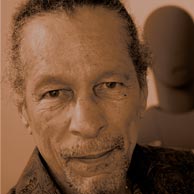
West, James E.
Innovative engineer, electrifying educator
West,
James E.

West, James E.
Innovative engineer, electrifying educator
When James West was a child, his curious mind compelled him, much to his family’s chagrin, to take apart his grandfather’s watch and his brother’s toys and to stick his finger in an electrical outlet. But a lifetime of curiosity also led him—even without the benefit of an official college degree—to secure more than 250 patents and accelerate the communications revolution.
In 1962, West and Gerhard Sessler, a fellow engineer at Bell Labs, developed the electret microphone, which is used today in most telephones and many other electronic devices. During more than four decades with Bell Labs, West continued to innovate and to expand academic and professional opportunities for blacks through the company’s Summer Research Program and Corporate Research Fellowship Program.
West joined the Johns Hopkins University faculty in 2002—at age 72—as a research professor in the Whiting School of Engineering. At Johns Hopkins, he continues his legacy of groundbreaking research and of expanding learning opportunities for future engineers. As the first chair of the Divisional Diversity Council of the Whiting School, he works with colleagues to recruit and retain minority students.
Ilene Busch-Vishniac, former dean of the Whiting School and a mechanical engineering professor, describes West, whom she helped recruit to Johns Hopkins, as “arguably the most accomplished and important black scientist active today.”
For his achievements, West has been honored with a National Medal of Technology, the nation’s highest honor for technological innovation, and been inducted into the National Inventors Hall of Fame.
-
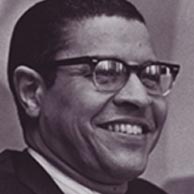
Wharton Jr., Clifton R.
Collector of firsts
Wharton Jr.,
Clifton R.

Wharton Jr., Clifton R.
Collector of firsts
For Clifton Wharton, being the first black person to earn a master’s degree in international affairs from Johns Hopkins University was only the beginning. He went on to become the first black to receive a doctorate in economics from the University of Chicago, the first black president of a major U.S. university (Michigan State), the first black to head the largest university system in the nation (the 64-campus State University of New York) and the first black chairman and CEO of a major U.S. corporation (TIAA-CREF).
In between these firsts, Wharton held various positions in philanthropy, economics, higher education and business, including 22 years working with the Rockefellers on foundation projects in Latin America and Southeast Asia and serving briefly as deputy secretary of state under President Bill Clinton.Wharton has garnered more than 60 honorary doctorates in recognition of his versatility and achievements.
-
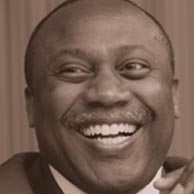
White, Paul T.
Champion of Change—Black Faculty and Staff Association Founder
White,
Paul T.

White, Paul T.
Champion of Change—Black Faculty and Staff Association Founder
The Black Faculty and Staff Association (BFSA) came together, as so many advocacy groups do, over lunch and a conversation. Lunch was at the Polo Grill, then a restaurant across from Homewood Field, and the people who had gathered to talk were black senior staff members concerned about the lack of support for people of color at Johns Hopkins. Toni Moore-Duggan, one of the participants, recalled how that lunch and subsequent discussions among the staff members led to their decision in 1995 to establish the BFSA. “After graduating from Johns Hopkins and while working there, it became evident that there was no voice or forum for black people having difficulties here,” said Moore-Duggan, a certified nurse practitioner who worked at the institution for years. At first, Moore-Duggan said, she and the other staff members were not sure if anyone would buy into efforts to create a forum for people of color, but they did. Seventeen years later, the group is not only going strong but has expanded its mission: to help foster a culture of collaboration by promoting and enhancing the identity and professional welfare and growth of faculty, staff and students through collaborations, community service, education, research and cultural activities. The BFSA has also charged itself with being a crucial resource for the continued success of Johns Hopkins through the development and cultivation of relationships with key leaders of the institution. Paul T. White, assistant dean of admissions at the Johns Hopkins School of Medicine, previously served as associate dean for admissions and financial aid for the School of Medicine and as president of the BFSA. Before joining Johns Hopkins, he held leadership positions in admissions for Yale University, Hamilton College and Colgate University. He earned a law degree from Georgetown University. He said he continues to work in admissions because of the opportunity to “help bring together a class, to shape the institution.”
-
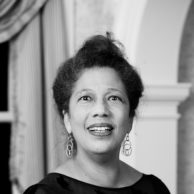
Williams-Glasser, Gail
University cheerleader
Williams-Glasser,
Gail

Williams-Glasser, Gail
University cheerleader
During her senior year at Western High School in Baltimore City, Gail Williams-Glasser wondered if and how she could possibly gain entrance to an elite college. Although her parents opposed and could not afford to bankroll her plans, she found support in a program called Training Now for Tomorrow, designed to encourage academically gifted working-class black students to pursue and succeed in higher education.
With bolstered confidence, honors student Williams-Glasser approached Johns Hopkins University and was quickly enrolled. It was the fall of 1970, the first year that Johns Hopkins began accepting female undergraduates, and among the 90 admitted were five black women: Williams-Glasser, two fellow freshmen, Shirley Dilsworth and Karen Freeman Burdnell, and two transfer students, Lynn Parker and Barbara Wyche.
Although she lived at home during her four years at Johns Hopkins and worked 25 hours a week at Sinai Hospital, Williams-Glasser still found time to join a chemistry club and, with a friend, to establish the university’s first cheerleading squad.
Williams-Glasser serves as the director of compliance and risk management at the League for People with Disabilities. She remains involved with the university as a member of the Johns Hopkins Alumni Association, the Society of Black Alumni, the Johns Hopkins Club and the Frederick Scott Brigade.